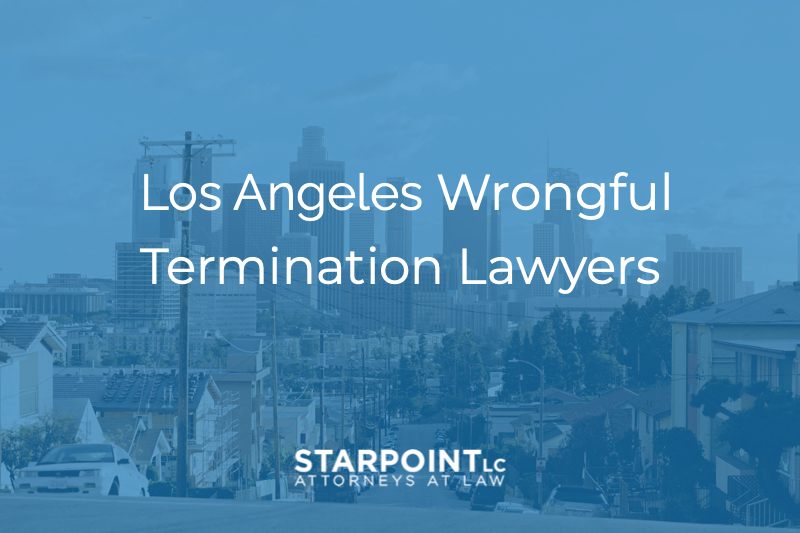
If you are an employee in California and think you have been wrongfully terminated, you might be able to file a lawsuit against your employer and recover damages.
In some cases of wrongful termination in California, you may even be able to get your job back.
Below, the experienced California employment attorneys at Starpoint, LC explain the details of wrongful termination in California.
If you have questions or would like to speak with a member of our team, contact us today. We offer free consultations.
What Is “At-Will” Employment in California?
California is an “at-will” employment state, which means that for the most part, an employer or employee can terminate the working relationship at any time without reason or notice.
Most jurisdictions allow at-will employment policies, though that doesn’t mean that you do not have legal rights if you are wrongfully terminated for an illegal reason.
Additionally, you may not be an at-will employee if you have a written contractual agreement for employment.
What Constitutes Wrongful Termination in California?
Wrongful termination in California occurs when an employment relationship is ended by the employer for reasons that violate the employee's legal rights.
California wrongful termination laws are some of the nation’s most comprehensive and protective.
It is illegal for employees to discriminate or retaliate against those who have legally asserted their rights as an employee.
There are several things that constitute wrongful termination in California.
Employee Discrimination in California
The California Fair Employment and Housing Act (FEHA) is the primary law protecting employees from discrimination in employment.
If your employer discriminates against you based on any of the following characteristics, you may have a claim for wrongful termination in California:
- Religion or creed;
- National origin or ancestry;
- Mental or physical disability;
- Race or color;
- Sex or gender, including pregnancy;
- Age (over 40);
- Gender identity or gender expression;
- Sexual orientation;
- Marital status;
- Medical condition;
- Genetic information; and or
- Military or veteran status.
The employment provisions of the FEHA apply to employers with five or more full- or part-time employees.
Most comparable federal laws cover only employers with at least 15 employees.
This means that more employers in California are subject to California anti-discrimination law than are subject to federal law.
Employer Retaliation in California
Along with discrimination, the California FEHA also prohibits retaliation against an employee because the employee has exercised their rights as a California employee.
Some examples include:
- Making a workplace health or safety complaint;
- Complaining about unpaid wages or overtime;
- Reporting unlaw activity;
- Reporting labor code violations such as failure to provide breaks;
- Claiming workers compensation; and
- Filing an OSHA complaint.
If you were fired after exercising any of these rights, you may have a valid claim for wrongful termination in California.
What to Do If You Are Wrongfully Terminated in California
California wrongful termination is not always easy to prove.
The best thing you can do if you think you have a wrongful termination case is to gather information surrounding the circumstances of your termination.
This could be documents, files, emails, text messages, videos, or testimony from witnesses.
Some of the relief you may be entitled to includes compensation for the following:
- Loss of wages,
- Loss of employment benefits,
- Emotional distress,
- Punitive damages, and
- Attorney fees, if applicable.
Contact a California Employment Lawyer Today
For the best chance of a successful case, you should consider seeking legal counsel.
The knowledgeable wrongful termination attorneys at Starpoint, LC have extensive experience helping California employees get the relief they deserve.
Contact us online or call (310) 882-7868 today, and let’s discuss your case.
